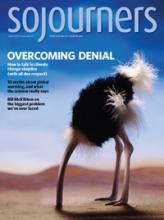I write this in late January, two weeks after Rep. Gabrielle Giffords and innocent bystanders were horribly gunned down in Tucson, and just a few days after Barack Obama’s eulogy for those who died—an American gospel for a nation in need. I write this at a moment when there is a feeling of coming together. Republicans and Democrats sat side by side during Obama’s remarks in Tucson, and committed to do so during the State of the Union address a few weeks later.
I hope that this is not a fleeting feeling, but a turning of a corner; that it is indelible, like the nation’s response to the assassination of President John Kennedy or the explosion of the Space Shuttle Challenger. There are other moments that seem fleeting for the larger nation, though they clearly make a big impact on the life of certain individuals and communities. The murder of Vincent Chin—a Chinese American brutally beaten to death in Detroit in 1982 because his attackers thought he was Japanese—was an awakening for the Asian-American community, but I bet most high school students don’t learn about him.
I write this for an audience that I know will remember—whether or not the whole nation does—at the time of this reading. And I am asking you to not just remember, but to lead.
There has been a lot of talk about civility in the wake of the Tucson shooting. There is something else at least as fundamental at stake here: American democracy. The whole idea of democracy is that the sentiments of our fellow citizens have power; we put ourselves in each other’s hands.
I believe that is, at the core, a spiritual idea, grounded in the basic dignity of humankind and the basic decency of human interaction.
Read the Full Article
